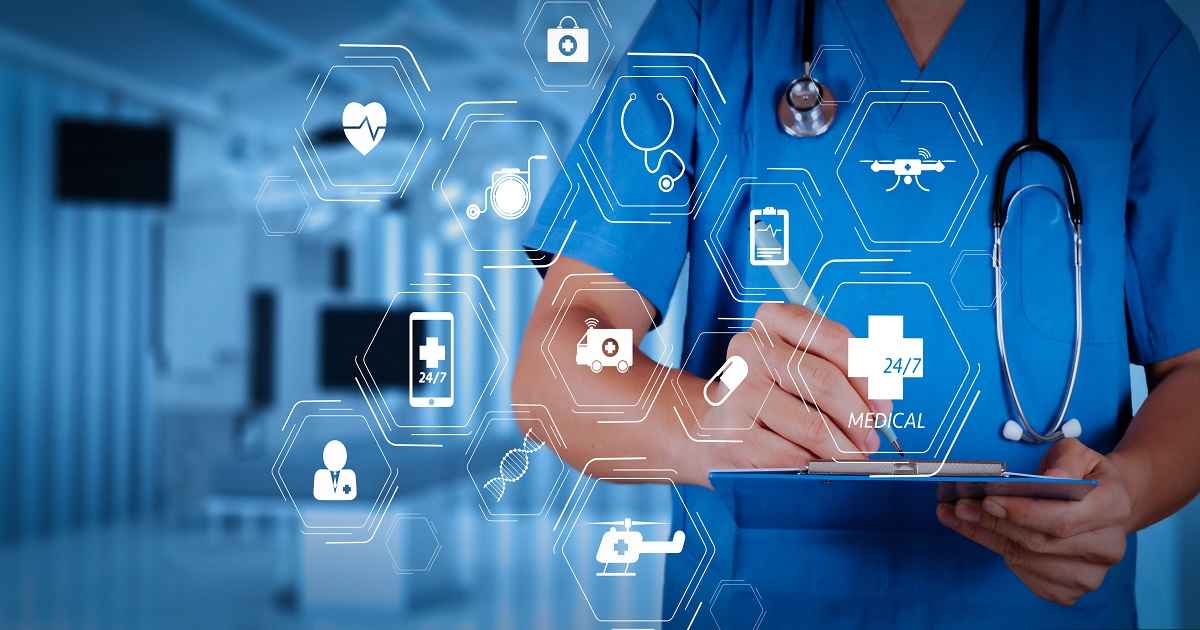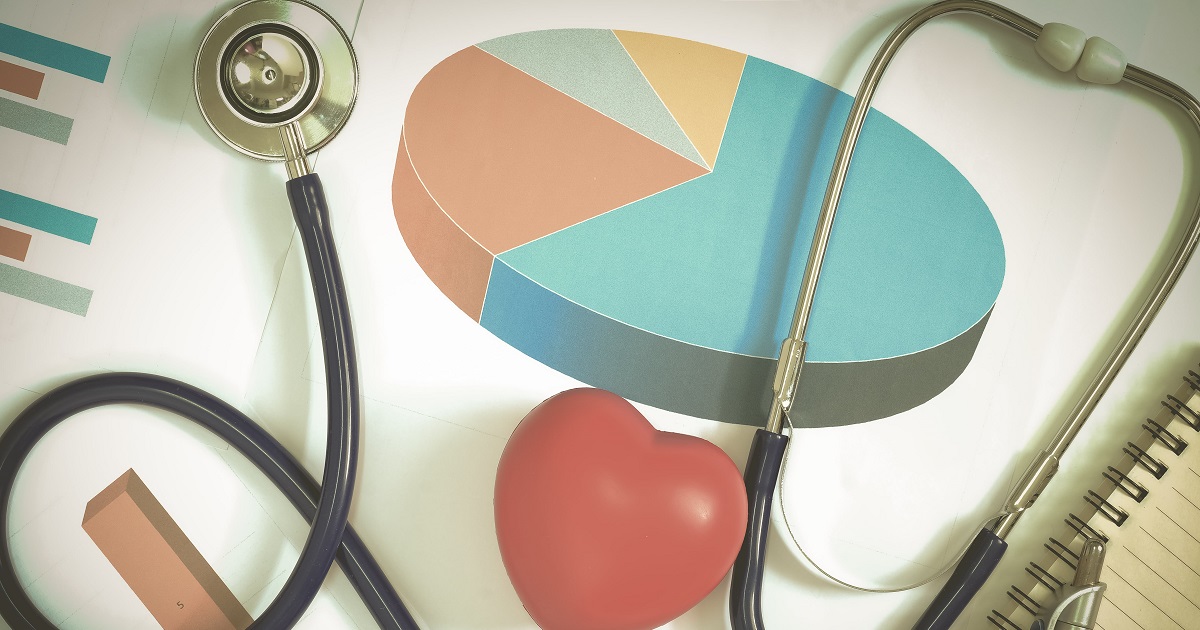
Healthcare Analytics
Keystone Healthcare Partners | February 05, 2024
Keystone Healthcare Partners a leading provider of emergency medicine, hospital medicine, critical care medicine, and telehealth staffing and management services, as well as revenue cycle management, recently announced that it has formed a partnership with Trinity Medical in Ferriday, Louisiana. Keystone's delivery of emergency medicine services at Trinity Medical will commence on February 1, 2024.
This contract represents an exciting expansion of Keystone's regional influence into Louisiana; the company has managed contracts in Mississippi for decades. Glenn Adams, Keystone's CEO & Co-founder, notes, "We are excited to kick off another partnership with a client where we see opportunity for real impact. We've hit the ground running to shore up areas of frustration for the client and bring value-add and innovative solutions, such as Keystone Connect AI technology to the emergency medicine program."
While the healthcare landscape has been challenging for rural and critical access hospitals, the two entities share a patient-centered ethos that will be paramount to the partnership. The two entities share a community- and patient-focus that is embodied by Trinity's motto, "People you know, caring for people you love."
"We are very excited to start our partnership with Keystone Healthcare," states Keisha Smith, CEO of Trinity. "My goal for Trinity Medical has always been to provide our patients with the best healthcare and customer service possible in the Miss-Lou area. We feel that Keystone shares the same goals that we have and will be a true asset to our hospital. Henry Ford stated, 'Coming together is a beginning, staying together is progress, and working together is success.' We are looking forward to a long lasting, successful partnership with Keystone Healthcare."
Trinity Medical, a 23-bed licensed facility, continues to grow and upgrade their services and facilities in addition to recruiting physicians to meet the growing needs of their expanding community.
About Keystone Healthcare
Keystone Healthcare™ is a leading provider of Emergency Medicine, Hospital Medicine, Critical Care Medicine and Telehealth clinical management services and staffing solutions for hospitals. We efficiently deliver high-quality, patient-centered care through strong physician leadership and involved management that drive our innovative and integrated business model.
About Trinity Medical
Trinity Medical is operated by Concordia Parish Hospital Service District No. 1. Trinity Medical, formerly Riverland Medical Center, opened in 1964 as Concordia Parish Hospital and has continuously served the residents of the area for more than 55 years.
In addition to emergency and acute care, Trinity Medical offers surgical services, diagnostic imaging, infusion center, cardio-respiratory care, gastroenterology, lab services, otolaryngology, urology, and an in-hospital rehabilitation service as well as an extensive range of out-patient services, both diagnostic and for treatment.
Read More

Digital Healthcare
UCI Health | February 02, 2024
The Regents of the University of California, on behalf of the University of California, Irvine, has entered into a definitive agreement with Tenet Healthcare Corporation to acquire Tenet's Pacific Coast Network. The network will become part of UCI Health, the clinical enterprise of UC Irvine.
"UC Irvine has deepened its healthcare commitment to the future of Orange County, our region and California," said UC Irvine Chancellor Howard Gillman. "This journey in healthcare is deeply intertwined with the University of California's dedication to bettering our communities, expanding access to premier healthcare, and pioneering the medical innovations of tomorrow, today. Our vision will bridge gaps in regional care and reinforce UCI's place among the nation's leading academic health systems while advancing solutions to challenges facing healthcare."
Pending customary regulatory approvals, clearances, and closing conditions, the proposed acquisition would bring four medical centers in Lakewood, Los Alamitos, Fountain Valley and Placentia and associated outpatient locations into the UCI Health system. UCI Health currently delivers care at UCI Medical Center in Orange and a growing network of multispecialty care centers.
"At UCI Health, we are excited to add these new care sites to the UCI Health network and extend the benefits of our compassionate, high-level care, clinical innovation, and scientific discovery," said Chad Lefteris, president and chief executive officer of UCI Health. "As Orange County's only academic health system, UCI Health is unique in its ability to offer the highest level of advanced care powered by the research and innovation of a world-class public research institution."
UCI Health recognizes a unique opportunity to build on the quality care already being delivered in the communities served by Tenet Healthcare's Pacific Coast Network.
"These four hospitals are well-regarded in their communities for providing high-quality, compassionate care," said Saum Sutaria, M.D., chairman and chief executive officer of Tenet Healthcare. "The local communities will benefit from the nationally recognized advancements, medical knowledge, research, and community focus that UCI Health brings as an innovative academic health system. UCI Health recognizes a unique opportunity to build on the quality care already being delivered in the communities served by the Pacific Coast Network."
In a region with a population greater than that of two dozen states, UCI Health operates the only Level I trauma center, locally based National Cancer Institute-designated comprehensive cancer center, high-risk perinatal-neonatal service and is the largest regional burn center and leading provider of complex tertiary and quaternary care. The system's clinical excellence has consistently placed UCI Health in the top 10 for quality and safety among the nation's leading comprehensive academic health systems.
The acquisition also means more patients will have access to advanced therapies in the region's largest and most diverse portfolio of clinical trials, ranging from cancer to neurosciences, digestive diseases, orthopedics and internal medicine specialties.
UCI Health and Tenet Healthcare's Pacific Coast Network patients can continue receiving care at their local facilities as they normally would from the care teams they know and trust. The transaction is expected to be completed in spring 2024, subject to customary regulatory approvals, clearances, and closing conditions.
"It is a privilege to provide world-class care to Californians and we are excited to welcome the clinicians and co-workers from these Tenet Healthcare sites to UCI Health as partners in improving the health of local communities," Lefteris said.
About UCI Health
UCI Health is the clinical enterprise of the University of California, Irvine, and the only academic health system in Orange County. Patients can access UCI Health at primary and specialty care offices across Orange County and at its main campus, UCI Medical Center in Orange, Calif. The 459-bed, acute care hospital, listed among America's Best Hospitals by U.S. News & World Report for 23 consecutive years, provides tertiary and quaternary care, ambulatory and specialty medical clinics, behavioral health and rehabilitation services. UCI Medical Center is home to Orange County's only National Cancer Institute-designated comprehensive cancer center, high-risk perinatal/neonatal program and American College of Surgeons-verified Level I adult and Level II pediatric trauma center, gold level 1 geriatric emergency department and regional burn center.
About UC Irvine
About the University of California, Irvine: Founded in 1965, UCI is a member of the prestigious Association of American Universities and is ranked among the nation's top 10 public universities by U.S. News & World Report. The campus has produced five Nobel laureates and is known for its academic achievement, premier research, innovation and anteater mascot. Led by Chancellor Howard Gillman, UCI has more than 37,000 students and offers 224 degree programs. It's located in one of the world's safest and most economically vibrant communities and is Orange County's second-largest employer, contributing $7 billion annually to the local economy and $8 billion statewide.
About Tenet Healthcare
Tenet Healthcare Corporation is a diversified healthcare services company headquartered in Dallas. Our care delivery network includes United Surgical Partners International, the largest ambulatory platform in the country, which operates or has ownership interests in more than 480 ambulatory surgery centers and surgical hospitals. We also operate 58 acute care and specialty hospitals, approximately 110 other outpatient facilities, a network of leading employed physicians and a global business center in Manila, Philippines. Our Conifer Health Solutions subsidiary provides revenue cycle management and value-based care services to hospitals, health systems, physician practices, employers, and other clients. Across the Tenet enterprise, we are united by our mission to deliver quality, compassionate care in the communities we serve.
Read More

Health Technology
Beckman Coulter Diagnostics | January 30, 2024
Beckman Coulter Diagnostics, a clinical diagnostics leader, will unveil its new DxC 500 AU Chemistry Analyzer, an automated clinical chemistry analyzer, at Medlab Middle East in Dubai, taking place February 5-8, 2024. The DxC 500 AU Chemistry Analyzer is one of several recent Beckman Coulter solutions designed to address the complete needs of healthcare systems that are looking to complement central hub laboratories by advancing the technology and capabilities of satellite and independent hospital laboratories.
"Healthcare systems around the world are strategically adopting hub-and-spoke models for better efficiency and healthcare access," said Kathleen Orland, Senior Vice President, Business Unit, General Manager, Chemistry and Immunoassay for Beckman Coulter Diagnostics. "Hub-and-spoke clinical laboratory models optimize resources to improve access to testing services and enhance overall standardization for quality testing and positive impact on inventory and cost management across a health system. The new DxC 500 AU Chemistry Analyzer advances capabilities of spoked labs with a broad menu of high-quality assays that deliver consistent, commutable results across Beckman Coulter's AU clinical chemistry systems, positively impacting clinical decision-making and patient outcomes."
The DxC 500 AU Chemistry Analyzer features advanced automation technology, onboard guided workflows, and standardized reagents for use across healthcare networks. Its menu of more than 120 assays has been independently and objectively verified for high quality Six Sigma performance, supporting confidence in clinical results, reducing QC trouble shooting and lab operational costs.
"Our Six Sigma assessment has shown that the DxC 500 AU analyzer easily exceeds the demands of the new, more stringent CLIA 2024 performance specifications," stated Sten Westgard, Director of Client Services and Technology for Westgard QC.
The DxC 500 AU Chemistry Analyzer is for in vitro diagnostic use only. It is available throughout North America and the Middle East. Global commercial availability is planned for March 2024.
About Beckman Coulter. Inc.
A global leader in advanced diagnostics, Beckman Coulter has challenged convention to elevate the diagnostic laboratory's role in improving patient health for more than 80 years. Our mission is to Relentlessly Reimagine Healthcare, One Diagnosis at a Time – and we do this by applying the power of science, technology and the passion and creativity of our teams. Our diagnostic solutions are used in complex clinical testing, and are found in hospitals, reference laboratories and physician office settings around the globe. We exist to deliver smarter, faster diagnostic solutions that move the needle forward from what's now to what's next. We seek to accelerate care with an extensive clinical menu, scalable lab automation technologies, insightful clinical informatics, and optimize lab performance services. Headquartered in Brea, Calif., with more than 11,000 global team members, Beckman Coulter Diagnostics is proud to be part of Danaher. Danaher is a global science and technology leader. Together we combine our capabilities to accelerate the real-life impact of tomorrow's science and technology to improve human health.
©2024 Beckman Coulter. All rights reserved. Beckman Coulter, the stylized logo, and the Beckman Coulter product and service marks mentioned herein are trademarks or registered trademarks of Beckman Coulter, Inc. in the United States and other countries.
Read More